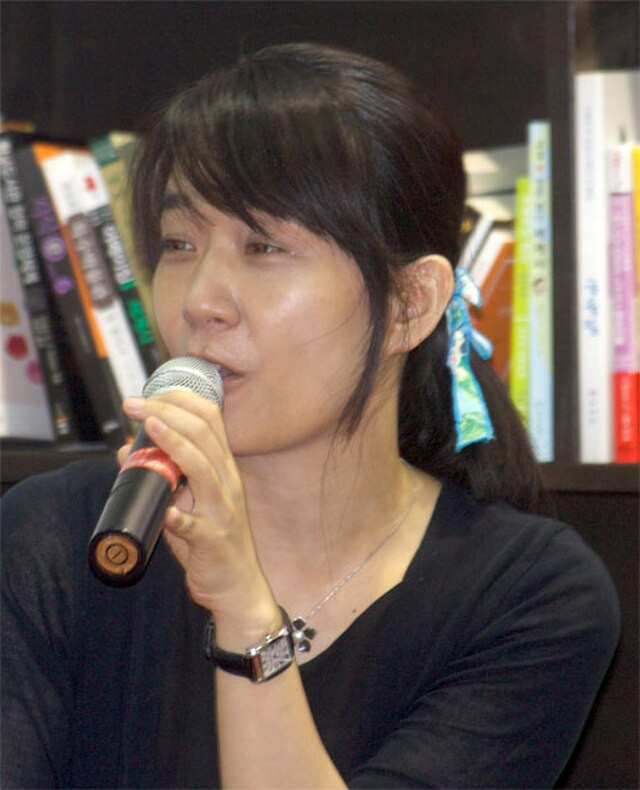South Korean author Han Kang has been awarded the 2024 Nobel Prize in Literature, a prestigious recognition of her evocative and intense prose that delves into the complexities of human life and historical trauma. The Swedish Academy honored Han for what it described as her "intense poetic prose that confronts historical traumas and exposes the fragility of human life," marking a significant moment in literary history as she becomes the first South Korean author and only the 18th woman to receive the prize.
The announcement was made by Mats Malm, the permanent secretary of the Swedish Academy, during a press conference in Stockholm. "I was able to talk to Han Kang on the phone," Malm said. "She was having an ordinary day-it seemed like she had just finished supper with her son. She wasn't really prepared for this, but we have begun to discuss preparations for December," when she will formally receive the Nobel Prize in a ceremony held on the anniversary of Alfred Nobel's death.
Han Kang, born in Gwangju, South Korea, in 1970, has been a leading voice in contemporary literature, known for her works that navigate themes of grief, violence, patriarchy, and the intricate relationship between body and soul. Her journey into the literary world began in 1993 with a series of poems published in a Korean magazine, followed by her first short story collection, "Love of Yeosu," in 1995. Over the years, her distinctive style and thematic focus have cemented her place as a transformative figure in modern prose.
Han's breakthrough on the global stage came with her novel "The Vegetarian," which won the International Booker Prize in 2016 after being translated into English by Deborah Smith. The novel, which tells the unsettling story of a woman's decision to stop eating meat and the devastating effects that follow, captivated international readers with its raw depiction of human consciousness and defiance against societal norms. This work, alongside other acclaimed novels like "Human Acts" and "The White Book," showcases her ability to blend intense emotion with a poetic narrative style.
The Nobel Committee's decision to honor Han Kang also highlights a broader shift in the literary world. Historically, the Nobel Prize in Literature has faced criticism for its focus on Western authors and a male-dominated roster of laureates. Han's win brings attention to Asian voices in literature, challenging the traditional narratives and spotlighting South Korea's growing influence in global culture.
"Han Kang's empathy for vulnerable, often female, lives is palpable, and reinforced by her metaphorically charged prose," said Anders Olsson, chair of the Nobel Committee. He praised her work for its "unique awareness of the connections between body and soul, the living and the dead," and noted her role as "an innovator in contemporary prose." Olsson emphasized how Han's experimental and poetic style has become a powerful tool for addressing both personal and collective traumas.
Han Kang's works, often described as dark and contemplative, confront societal issues head-on, delving into South Korea's turbulent history and the psychological scars left by such events. Her novel "Human Acts," a finalist for the International Booker Prize in 2018, vividly depicts the aftermath of the 1980 Gwangju Uprising, a pro-democracy protest in South Korea that was met with violent suppression. This focus on historical traumas and their long-lasting effects on individuals and communities is a recurring theme in her writing.
Han's literary achievements have not only elevated her standing within the South Korean literary community but also brought global recognition to contemporary Korean literature. Her ability to convey the complexities of human emotions through stark and haunting prose has earned her accolades far beyond her home country. Her latest novel, "We Do Not Part," set to be published in English in 2025, explores the impact of the 1948-49 Jeju Uprising, further solidifying her commitment to telling stories that resonate with historical significance.
The Nobel Prize in Literature, which includes a cash award of 11 million Swedish kronor (about $1 million), is the latest addition to Han Kang's growing list of accolades. Her contributions to literature have not only enriched the genre but have also opened up dialogues about identity, resilience, and the universal experiences of suffering and recovery.




